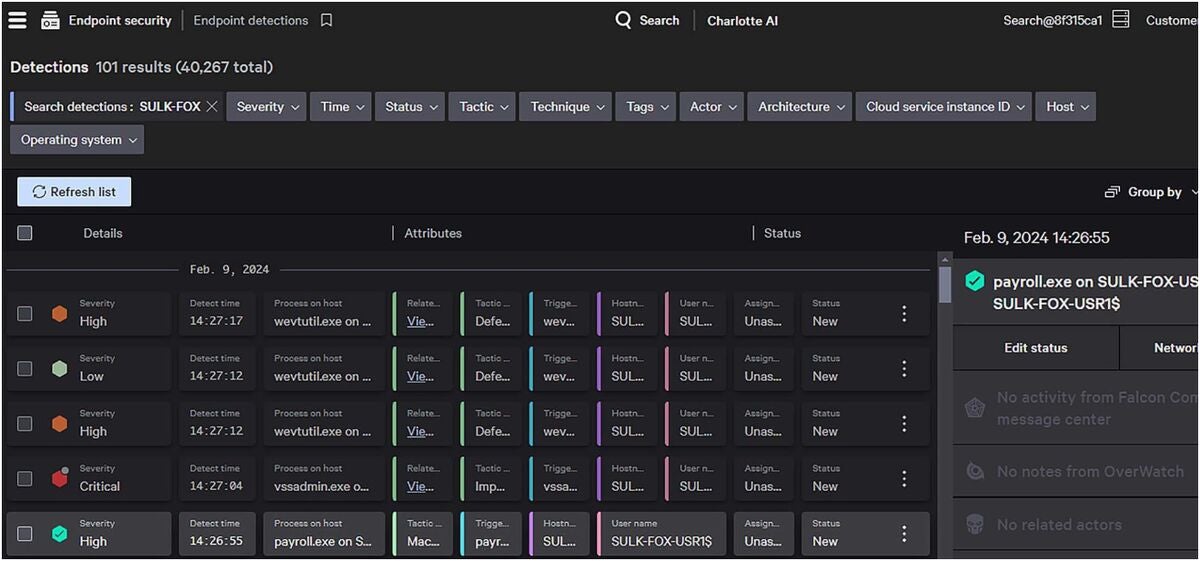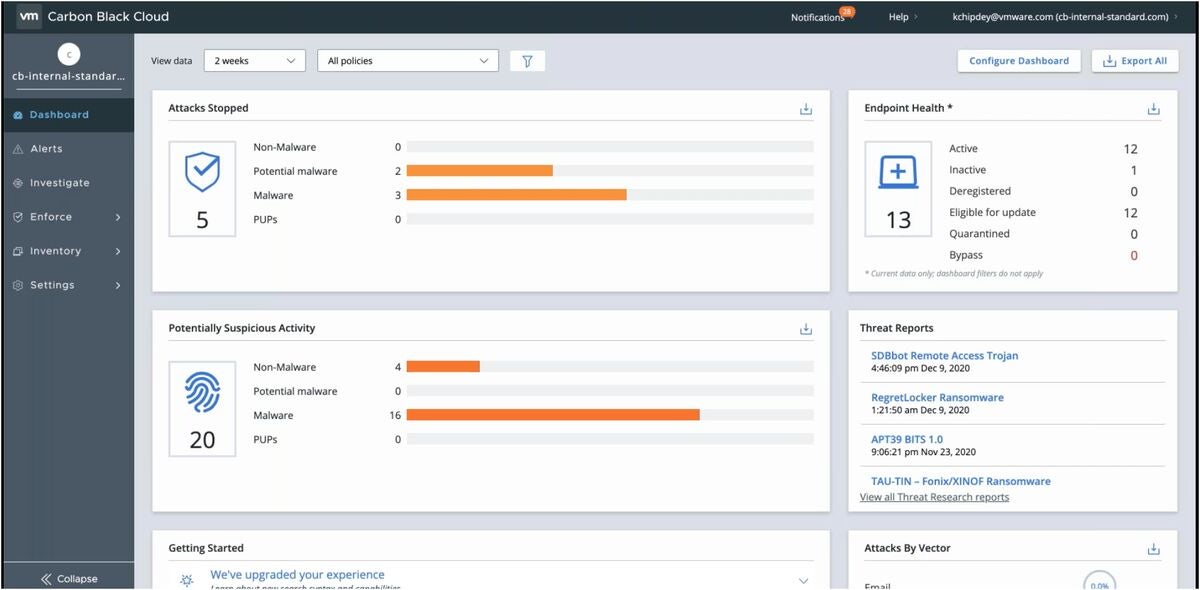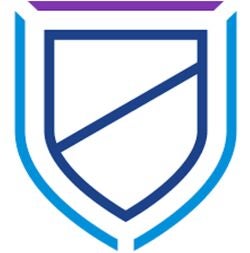
As organizations grow, they’ll need to acquireendpoint detection and response tools to monitor activity and secure endpoint devices. VMware’s Carbon Black EDR and CrowdStrike’s Falcon products are two top EDR solutions with features that can help to improve an organization’s security posture.
SEE: Microsoft Defender vs Carbon Black: EDR Software Comparison (TechRepublic)
In this article, we take a look at which EDR solution is best for you and your organization.
For pricing, VMWare doesn’t explicitly provide pricing for its Carbon Black EDR products. At the moment, it offers three software bundles for EDR: Endpoint Standard, Endpoint Advanced and Endpoint Enterprise.
SEE: CrowdStrike vs FireEye: Compare EDR Software (TechRepublic)
Here’s an overview of each:
I did wish that VMware offered some sort of free trial or limited product access for prospective buyers to test drive its software for free. This is hopefully something it can provide in the future, especially since CrowdStrike offers a free trial.
SEE: 10 Myths about Cybersecurity You Shouldn’t Believe (TechRepublic Premium)
Speaking of CrowdStrike, its EDR solution can be purchased either through its Falcon Enterprise or Falcon Elite subscriptions. Below is an overview of pricing and feature inclusions for each CrowdStrike Falcon plan.
As mentioned, Falcon Enterprise has a free trial for businesses or individuals who want a convenient way to try its solution without an initial subscription.
Both Carbon Black and CrowdStrike offer powerful threat hunting and remediation features. However, CrowdStrike is a more robust solution based on MITRE Engenuity tests. Its alignment to the MITRE Framework saw it named a Leader in Gartner’s 2023 Magic Quadrant for Endpoint Protection Platform. The product also held the top position for Completeness of Vision.
In contrast, Broadcom or VMware (Carbon Black) missed some threat detections when tested against the MITRE Framework from 2022 to 2018 and is placed in a lower position in the same 2023 Magic Quadrant findings.
Using a single agent to centrally manage multiple endpoint devices ensures teams can deploy quickly and begin handling threats.
CrowdStrike uses a single universal agent design. The Falcon platform uses a single lightweight agent deployed on endpoint devices that collects data and sends it to the cloud for analysis.
SEE: CrowdStrike vs Sophos: EDR Software Comparison (TechRepublic)
On the other hand, Carbon Black is a complex security tool with a steep learning curve. It requires significant tuning and configuration. Moreover, its threat detection queries are overly complicated, and there are several manual processes to manage alerts and remediation.
EDR software can either be signature-based or signatureless. Signature-based EDR programs rely on a database of known threats, while signatureless EDR programs use machine learning and behavioral analytics to identify suspicious activity.
Both CrowdStrike and Carbon Black offer behavioral analytics and machine learning capabilities to track down anomalies and detect suspicious endpoint and system behavior.
One difference, however, is that CrowdStrike provides advanced, signatureless protection through integrated threat intelligence, machine learning and behavioral analytics, while Carbon Black includes a signature-based AV engine. As a result, CrowdStrike can better protect devices from new and unknown threats.
CrowdStrike comes as one platform for all workloads. It provides comprehensive protection coverage that you can deploy across Windows, Linux and macOS servers and endpoints. In addition, there is no on-premises equipment requiring maintenance, management, scans, reboots and complex integrations.
In contrast, Carbon Black comes as an on-premises or cloud solution. There may be a need for device restarts, including critical servers, as part of the sensor update process. In addition, there is a feature disparity between on-premises and cloud versions.

Carbon Black’s EDR software allows device control (no firewall management), but it is restricted to Windows OS and USB flash drives. It also lets you create your endpoint security policies, which is beneficial for businesses with specific regulatory or performance standards to meet.
By comparison, Falcon Firewall Management from CrowdStrike allows customers to move from legacy endpoint platforms to the company’s next-generation EDR software, which includes robust protection, better performance, and efficient management and enforcement of host firewall policies. In addition, Falcon Firewall Management offers simple, cross-platform management of host/OS firewalls from the Falcon console, allowing security teams to limit any risk exposure effectively.
Furthermore, the Falcon Device Control allows users to safely utilize USB devices by offering complete end-to-end protection and detection and response (EDR) capabilities. Its seamless integration with the Falcon agent and platform comes with device control features complemented with complete endpoint security. This provides security and IT operations teams insight into how devices are being used and the means to regulate and manage that usage.
API integration ensures you get the most out of your EDR software. Carbon Black’s EDR solution offers more than 120 out-of-the-box integrations.
On the other hand, CrowdStrike’s Falcon platform is developed as an API-first platform. As new features are released, corresponding API functionality is added to help automate and control any newly added operations.


CrowdStrike is the better choice if you need comprehensive coverage and protection against new and unknown threats that you can deploy across Windows, Linux, and macOS servers and endpoints. However, if you’re looking for an on-premises solution to provide you with protection against known threats, then Carbon Black may be better.
Ultimately, the decision comes down to your risk profile and specific needs and requirements.
My head-to-head comparison of VMware’s Carbon Black EDR and CrowdStrike’s EDR solution involved doing a one-to-one analysis of their security features, pricing and overall value.
In particular, I considered critical EDR functionality such as threat hunting and remediation, ease of deployment, behavioral learning, firewall control and API integration.
My evaluation of both solutions involved in-depth research of official product documentation, features included and possible use cases for different types of businesses. We also considered real user testimonials and third-party reviews from reputable review sites to supplement our final analysis.